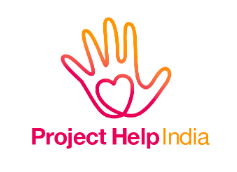 This is one of the young women who every day attend our technology class at www.kotdwarahelp.org. These girls from North India come from a background of terrible poverty and need every opportunity to find success in life. This is one of the young women who every day attend our technology class at www.kotdwarahelp.org. These girls from North India come from a background of terrible poverty and need every opportunity to find success in life. I teach because I love. Some more gold from Jim Knight, internationally renowned educator (www.instructionalcoaching.com and www.corwin.com/focusonteaching/) who speaks on instructional coaching and the art of conversation. 5 perspectives necessary for rich, powerful, authentic dialogue in our classrooms and schools.
I’m inspired by the thought that ‘love’ must be at the centre of our relationships. Why is it that we are afraid to have the word ‘love’ as part of the vocabulary of our schools, and even at the centre of our pedagogy. Love motivates us to want what is truly best for others. A couple of weeks ago at our staff meeting, I challenged my team to consider the words of 1 Corinthians 13. Most of us know this passage well because we hear it so often at weddings. I reckon these words pack a powerful punch when we apply them to the context of the conversations, the partnerships and the relationships that we have in our classrooms, and in our common rooms, the corridors, the playground and across our school community. “Love is patient and kind. Love is not jealous or boastful or proud or rude. It does not demand its own way. It is not irritable, and it keeps no record of being wronged. It does not rejoice about injustice but rejoices whenever the truth wins out. Love never gives up, never loses faith, is always hopeful, and endures through every circumstance.” 1 Corinthians 13:4-7 I teach because I love.
1 Comment
 This is a pic of one of the slum kids who attend one of our schools at www.kotdwarahelp.org This is a pic of one of the slum kids who attend one of our schools at www.kotdwarahelp.org I’ve just been most fortunate to sit under the teaching of Jim Knight. Jim is an internationally renowned educator ( www.instructionalcoaching.com and www.corwin.com/focusonteaching/) who speaks on instructional coaching and the art of conversation. I was blown away by what he had to say, especially his module on the ‘Principles of Partnership”. I highly recommend him as an inspiring thought leader. This blog aims to provide a challenge (with my sincere thanks to Jim Knight) regarding the partnership we have with others in our schools. There are so many partnerships and central to this are relationships. We must value healthy relationships if our classrooms and our schools are to be strong and full of life and vitality. Schools provide the context for people in community to ‘do life with each other’. Consider the many partnerships that exist in a school; student – student teacher – student teacher – teacher teacher – parent Principal – student Principal – teacher Principal – parent school – wider community community So what characterises strong, healthy, inclusive partnerships in our schools? I include my notes from Jim’s Seminar, and while he is specifically referring to the partnership between an instructional coach and a teacher, I believe there is great depth and perspective as we apply these principles to the myriad of relationships that exist in our schools. Equality – A healthy partnership recognises that relationships are between equals. Choice – In partnerships, one individual does not make decisions for the other, rather they offer choices for learning. “Because partners are equal, they make their own individual choices and make decisions collaboratively.” Voice – My perspective and opinion matters. As humans we flourish when we feel that our voice matters. “All individuals in partnership have opportunities to express their point of view”. Let us never underestimate the power of student voice in our schools. Dialogue – We learn when we engage in authentic dialogue. “Partners engage in conversation, learning together as they explore ideas.” Reflection – Reflective thinking is the key to success and improvement. Praxis – Understanding the point or the ‘why’ of the conversation. Why are we coming together, and what is the goal that we share? Momentum and growth occur when we are talking about something that matters. Reciprocity – Do we truly believe that we are equals? Partners should expect to get as much as they receive. Our schools are learning communities. Think about the people you serve and do life with. I encourage you to apply these seven principles to the perspective and stance that you take in your conversations with others. To be in partnership means that you share something with another person or party. Perhaps it’s working towards a common goal, something you are learning or trying to teach and explain to a child, someone you both care about, a problem that needs solving, or striving towards a shared vision. The more we value authentic relationships built on mutual trust and respect, we truly will experience powerful learning. We will empower one another, and that ‘shared something’ will be sure to grow. I teach because I want you to learn and to flourish.
|
claremont.nsw.edu.auarchives
June 2024
categories |


